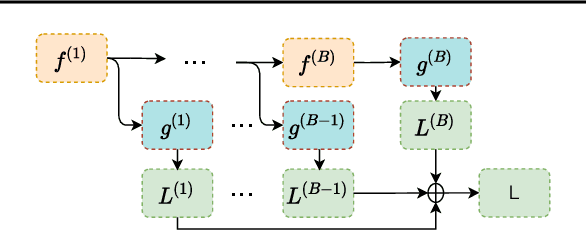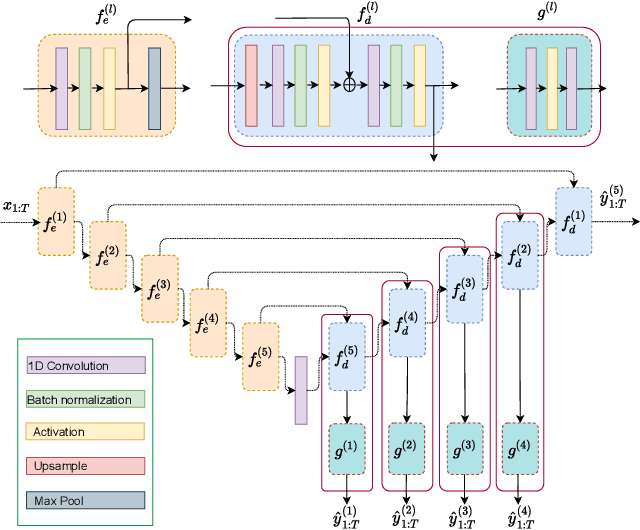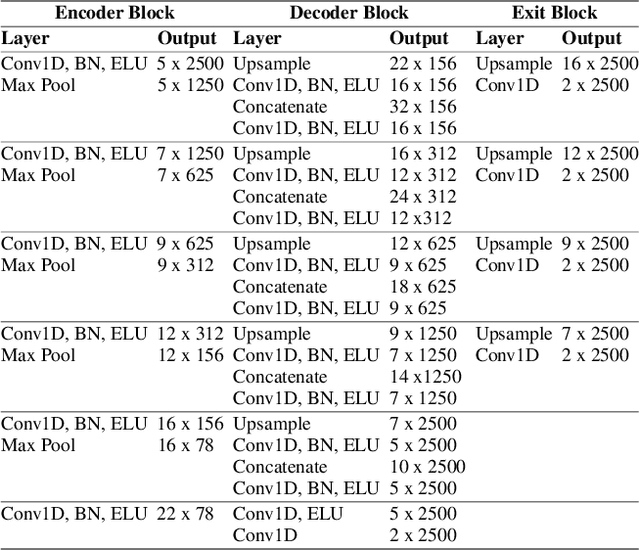High Frequency EEG Artifact Detection with Uncertainty via Early Exit Paradigm
Paper and Code
Jul 21, 2021



Electroencephalography (EEG) is crucial for the monitoring and diagnosis of brain disorders. However, EEG signals suffer from perturbations caused by non-cerebral artifacts limiting their efficacy. Current artifact detection pipelines are resource-hungry and rely heavily on hand-crafted features. Moreover, these pipelines are deterministic in nature, making them unable to capture predictive uncertainty. We propose E4G, a deep learning framework for high frequency EEG artifact detection. Our framework exploits the early exit paradigm, building an implicit ensemble of models capable of capturing uncertainty. We evaluate our approach on the Temple University Hospital EEG Artifact Corpus (v2.0) achieving state-of-the-art classification results. In addition, E4G provides well-calibrated uncertainty metrics comparable to sampling techniques like Monte Carlo dropout in just a single forward pass. E4G opens the door to uncertainty-aware artifact detection supporting clinicians-in-the-loop frameworks.
 Add to Chrome
Add to Chrome Add to Firefox
Add to Firefox Add to Edge
Add to Edge